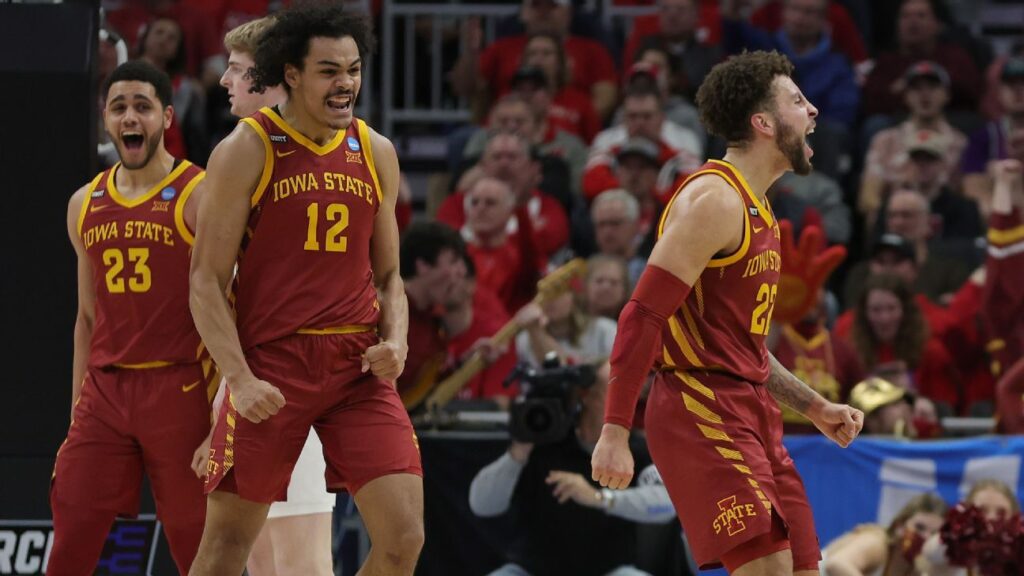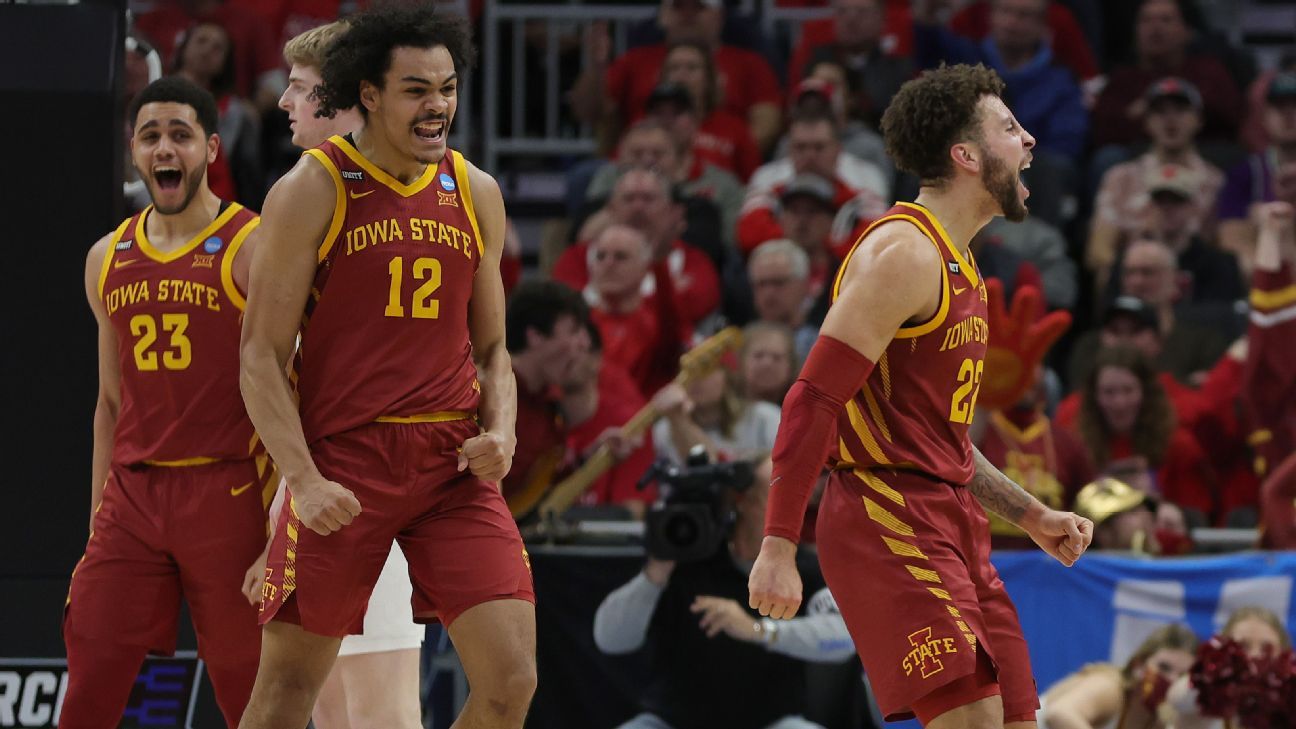‘It’s crazy’: Iowa St. goes from 2-22 to Sweet 16
The 11th-seeded Iowa State Cyclones continued their historic turnaround from last year’s 2-22 campaign by defeating 3-seed Wisconsin in front of…


MILWAUKEE — When new Iowa State coach T.J. Otzelberger assembled his team for the first time on June 10, he never put specific numbers on the goals ahead.
The numbers had been bleak enough for the Cyclones in 2020-21: just two wins, none after Dec. 20, 2020, and 18 straight losses to close the program’s worst season since 1925.
“We didn’t set out for a certain win total or to do anything based on what transpired in the past,” Otzelberger said. “What we did set out to do is restore pride to a program that I love so much.”
Nine months later, Iowa State can celebrate a new number: Sweet 16. The 11th-seeded Cyclones continued their historic turnaround on Sunday, stunning No. 3 seed Wisconsin 54-49 in front of a Wisconsin-heavy crowd at Fiserv Forum. ISU advanced to its first Sweet 16 appearance since 2016, when Otzelberger served as an assistant, and it will play Friday in Chicago.
Iowa State on Friday became the team with the lowest winning percentage (.083) in the previous season to win an NCAA tournament game, as it outlasted LSU 59-54. Before Sunday, the team with the lowest winning percentage to reach the Sweet 16 the following year was Ohio State, which went 8-22 (.267) in 1997-98 before a Final Four run in 1998-99. (The Buckeyes later had to vacate their wins.)
“How we turned around this program from [2-22] to the Sweet 16, it’s crazy,” said Cyclones guard Gabe Kalscheur, who scored a game-high 22 points. “A lot of people don’t see that as big from the outside, but in this community of Ames, Iowa, it’s a big turnaround.”
Kalscheur fueled the offense, but Iowa State beat Wisconsin using its signature defense, holding the Badgers to season lows in points (49), field goal rate (29.8%), 3-pointers (2) and 3-point shooting rate (9.1%). Iowa State allowed only 103 points total in its first two tournament games.
A group led by Kalscheur held Johnny Davis, the Big Ten player of the year and a Wooden Award contender, to 17 points on 4-of-16 shooting. Although the Badgers struggled mightily after losing point guard Chucky Hepburn to an ankle injury late in the first half, Iowa State’s swarming perimeter defenders flustered Davis, senior guard Brad Davison and others.
Kalscheur, who began his college career at Minnesota and grew up in the state, said he “never liked Wisconsin” and drew energy from going against familiar faces in a roadlike setting about 80 miles from the Wisconsin campus.
“Johnny Davis and Brad are some really great players, but it fuels me to know that there’s a lot of talk about them and not a lot of talk about us,” Kalscheur said. “We’re on a big stage here. We all took pride in knowing that just because they have a name, we have a heart, and we came out victorious.”
Otzelberger, a Milwaukee native, sought “low-ego, high-producing guys” in reshaping the roster largely through the transfer portal. Iowa State’s top three scorers from last season transferred out, and the coach added players such as Kalscheur, Izaiah Brockington from Penn State and Aljaz “Jaz” Kunc from Washington State.
“Not a lot of guys stayed on the team from last year, so we all had like a clean slate,” Kunc said. “It started June 10 as soon as we stepped foot on campus, as soon as we met each other and started practicing, waking up at 6 a.m., practicing at 6:30, 7, it doesn’t really matter. It worked out great for us.
“We’re getting rewarded for all the work we put in.”
Otzelberger’s notorious early-morning “soccer field workouts” last summer instilled mental and physical toughness that carried into the season. Players such as Kalscheur could be wildly inconsistent on offense — he had three scoreless games and 11 with five points or fewer — but always steady on defense.
“They knew what they were signing up for,” said Otzelberger, who built his defense-first style after watching former Wisconsin coach Dick Bennett as a kid. “They knew what our identity would be. We believe that if you play hard defensively and you dictate that, you can control the game.
“We’re not going to apologize for how we have to win, and we’re not going to apologize for aesthetically how it may look. They’re winners.”




